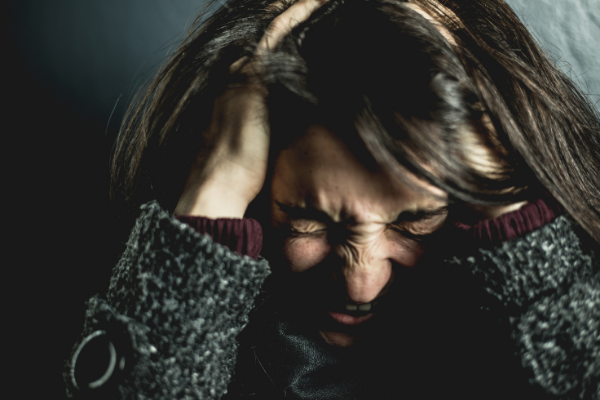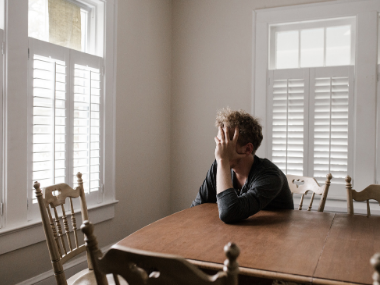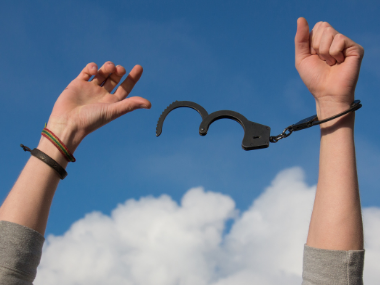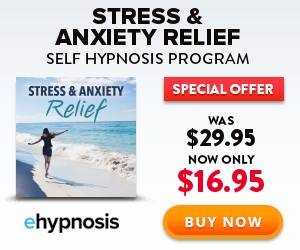
We all get anxious sometimes. Whether we struggle with butterflies before a date, a tight throat before a presentation, or a sense of panic before a plane takes off, we all know the thoughts and feelings that anxiety brings.
But what do you do when this fear stops you from growing and from doing the things you want to do? Perhaps you've heard that hypnosis for anxiety and stress can be effective.
But do you understand what it involves, and why it's one of the most effective strategies you can use?
We'll start by taking a look at the nature and roots of anxiety. We'll note some common triggers and consider when anxiety becomes excessive enough to be problematic.
Next, we'll help you understand how hypnotherapy for anxiety really works. We'll look at some of the surprisingly far-reaching benefits you can expect, and explain how you can start using anti-anxiety hypnosis techniques today.
Why Do We Suffer From Anxiety?

We all experience it, and it's just as normal as sadness, happiness, anger, and surprise.
It's highly likely that anxiety has an evolutionarily important role to play.
Specifically, it's part of our body's warning system that is designed to get us safe.
So, when we feel anxious, it's because our brain has identified some kind of threat to our well-being. Unfortunately, however, this system can go wrong in a couple of ways.
It may mislabel benign things as threats, and it may make us disproportionately afraid of things that are only slightly threatening.
Common Reasons We Feel Anxious

Any of these things can cause minor, manageable levels of anxiety, or can tip over into life-limiting levels of anxiety.
Common examples include the following:
- Public speaking
- High-stakes professional situations (e.g., job interviews)
- Enclosed spaces or large crowds
- Specifics phobias (e.g., of heights or spiders)
- Meeting new people
- Sex (e.g., someone new seeing your body)
- Speaking in large social groups
- Flying
- Exams
- The possibility of health problems
However, certain major life changes can also cause new anxiety to emerge. For example:
- Grief
- Impending or ending marriage
- Having a child
- Dependence on drugs or alcohol
- Money worries
- Bullying
Even when experienced occasionally, such anxiety can be extremely unpleasant. However, at times it becomes genuinely unmanageable - and this is when anxiety becomes a real problem.
When Does Anxiety Become A Problem?

Do you feel you'd be a more fulfilled, happier person if you weren't experiencing anxiety? This suggests a need for support.
It can help you to think about an example case. If we take anxiety about new social contexts, the person with manageable anxiety will feel nervous before the encounter but will be able to get this under control and, in time, will relax into the situation.
In contrast, the person with unmanageable anxiety might either avoid the social situation altogether or might be completely unable to calm down during it. For example, they might sweat, feel their heart racing, and so on.
Struggling with anxiety is not your fault, and is nothing to be ashamed of. With help, you can begin to get it under control.
What Is Hypnotherapy And How Can It Help Relief Anxiety

When you're deeply relaxed, your mind becomes more susceptible to suggestion. The hypnotherapist uses this suggestibility to get around the mental blocks that stand between you and success. In particular, anxiety hypnosis will help change your responses to previous triggers.
So, for example, a plane ride that used to make you feel afraid may begin to elicit feelings of calmness - or even positivity. Some hypnotherapy also gives you affirmations to say in anxious situations, such as "I am calm, relaxed, and in control."
Self-hypnosis can be an especially good approach to anxiety, as this involves listening to recordings in private and in your own time. This removes any element of anxiety you might feel in the room with a therapist. Regardless of the form you choose, it's important to note that anxiety hypnosis can't make you do anything you want to.
Rather, it helps you get out of your own way. Anxiety is fundamentally based on difficulties with emotional regulation and on incorrect risk assessments, and hypnotherapy can help to make your thinking more realistic.
Benefits of Using Self-Hypnosis To Stop Anxiety
Obviously, a reduction in anxiety is the main thing you'll be looking for when you try self-hypnosis. And happily, research supports hypnosis as a useful alternative therapy that gets especially good results in cases of anxiety and phobias.
However, you may not have thought about the further-reaching benefits of self-hypnosis. As it turns out, hypnotherapy can change your life in all kinds of positive ways. Here are three of the most significant
Gives Your Mind Enhanced Attention And Awareness

Self-hypnosis helps to strip away irrelevant thoughts, and this enhances your ability to focus on tasks.
In addition, self-hypnosis creates space for more self-awareness, so you get to know your own needs in more depth. Like mindfulness, hypnosis is also known for helping you to tune into the present.
This means you're more aware of what's happening around you, what you're thinking, and what you're feeling from moment to moment.
All of these associated benefits come together to help you live more authentically.
Improves Physical And Emotional Control
Self-hypnosis for anxiety also helps to improve your self-control. When you're anxious, you often can't get yourself to act in the ways you would like.
You can easily become avoidant, have trouble expressing yourself, and find your feelings escalating out of control. Once you're calmer, more focused, and less anxious after hypnotherapy, you are better able to regulate your own feelings.
You can identify and acknowledge triggers, but then triumph over them rather than submitting to them. Further, you know that your self-hypnosis sessions are always available to listen to again. This gives you a tool to control escalating emotions if you start to feel overwhelmed.
Build Confidence And Stop Limiting Beliefs

Self-hypnosis gives you the resources to rejected those outdated, limiting beliefs and replace them with more accurate, positive beliefs.
For example, if you grew up being told that your voice shouldn't be heard or wasn't valuable, this can easily make you feel anxious about public speaking.
Self-hypnosis can help you come to believe that you are worth hearing, and can help you feel good about your contribution in both social and work settings.
The result is increased confidence, which in turn breeds more opportunities for development and fulfillment.
Start Using Self-Hypnosis To Cope With Anxiety And Stress Now
You now understand how anxiety hypnosis and stress hypnosis recordings work. Essentially, they bypass your conscious mind and help to rewrite the parts of your subconscious that are making you anxious and happy.
If you have anxiety, self-hypnosis is a powerful, risk-free tool that can help you take control of your life.
Even more effective when combined with over personal development tools like journaling or therapy, self-hypnosis can be done in private and only takes a short amount of time away from your day.
So, if you've been suffering from anxiety and wondering whether you'll ever feel better, why not try our stress and anxiety relief program?
Suitable for beginners and people with self-hypnosis experience, this program aims to relieve the burden of stress, mental fatigue, and anxiety.
The result is a happier, more relaxed version of yourself - both physically and mentally. You'll find your body feeling looser and less tense, and your mind calmer and more open.
Whether you want to be more confident at work, on dates, in social settings, or when traveling, this program can help you to see yourself and the world in a more positive light - starting today.


